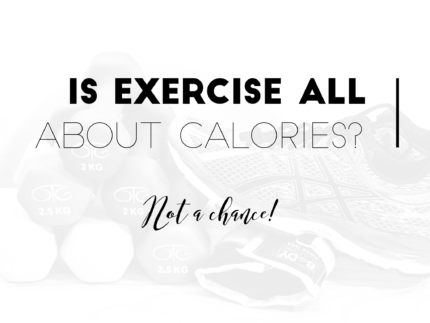If I were to stand on the busy streets of Toronto and ask people what the benefit of exercise is the majority of people would likely have the same response – burn calories to lose weight. I know it’s easy to focus on the ‘calories burned’ section on the elliptical, but today I want to take the time to introduce to you the overabundance of other things exercise does for you and your health.
It Improves Mental Health
From a population level, I don’t know why physical activity isn’t incorporated into first-line treatment for mental health conditions. The research has shown for well over a decade that regular physical activity can help to reduce anxiety, depression, and negative mood.1 Not only that, but it can improve mood and self-esteem.2 Studies have looked at different forms of exercise such as endurance training (i.e. running) and strength training (i.e. lifting weights) and they all point to the same conclusion – regular exercise benefits your mental health both short-term and long-term. The key here is regular exercise, so as long as you enjoy what you’re doing I support you 100%!
It Helps to Prevent Osteoporosis
Did you know that as women our bone density starts to decline around the age of 30? I don’t say this to scare you, but I think it’s important to know how important bone health is in women specifically. When it comes to bone health and fracture prevention, resistance training will give you the best results.3 Whether it’s body weight exercises or using free weights and machines, resistance training should be incorporated into your life at least 2-3 times per week. That’s not to say other activities such as walking, jogging, swimming and other recreational sports don’t have their place; resistance training will just give you the biggest bang for your buck.
It Helps Digestion
Proper digestion is vital for many aspects of our health. For starters, if we can’t breakdown and absorb the food we eat, well what’s really the point? And if we can’t eliminate toxins, hormones, and waste from our bodies then that’s a recipe for disaster too. Exercise increases circulation sending newly oxygenated blood to your digestive tract after exercise is complete. It’s important to note that you should not exercise right after you eat because blood is diverted from your digestive system to your muscles during exercise itself. In addition, our body needs to be in a parasympathetic state for optimal digestion. Forms of exercise that bring you into this ‘rest and digest’ state, such as yoga or walking in nature, will contribute to healthy digestion.
It can Improve Hormones
Did you think I would forget about hormones? The main hormone I think of that benefits from exercise is insulin. When people hear the word insulin they generally think of diabetes; however, insulin has effects on more than one condition. Insulin plays a huge role in women with PCOS and those struggling with weight loss resistance as well. The common factor in all of these scenarios is decreased insulin sensitivity. Under normal circumstances, insulin knocks on the door of our cells to let them know it’s time to let blood sugar (glucose) in to be used as energy. In certain conditions, there is decreased insulin sensitivity where the cell is resistance to insulin and we have a build-up of glucose in our blood. Exercise itself will increase the cell’s sensitivity to insulin to allow proper transport of glucose into the cells.
The list could go on and on but I think you get the point. Incorporating exercise into your everyday life can drastically improve every aspect of your health. With that being said, variety is the spice of life so make sure to incorporate different types of exercise that you enjoy – strength training, dance, walking, or swimming. In my practice, one of the biggest barriers to exercising I see is accountability. My suggestion is to find a buddy! Maybe they’re a coworker, your partner, or someone at your gym, committing your time to someone else will ensure that you’re getting up and active.
References:
- Callaghan P. Exercise: a neglected intervention in mental health care? J Psychiatr Ment Health Nurs. 2004;11(4):476-483. doi:10.1111/j.1365-2850.2004.00751.x.
- Hoffman MD, Hoffman DR. Does aerobic exercise improve pain perception and mood? A review of the evidence related to healthy and chronic pain subjects. Curr Pain Headache Rep. 2007;11(2):93-97. http://www.ncbi.nlm.nih.gov/pubmed/17367586. Accessed March 3, 2018.
- Russo CR, MD. The effects of exercise on bone. Basic concepts and implications for the prevention of fractures. Clin Cases Miner Bone Metab. 2009;6(3):223-228. http://www.ncbi.nlm.nih.gov/pubmed/22461250. Accessed March 3, 2018.

